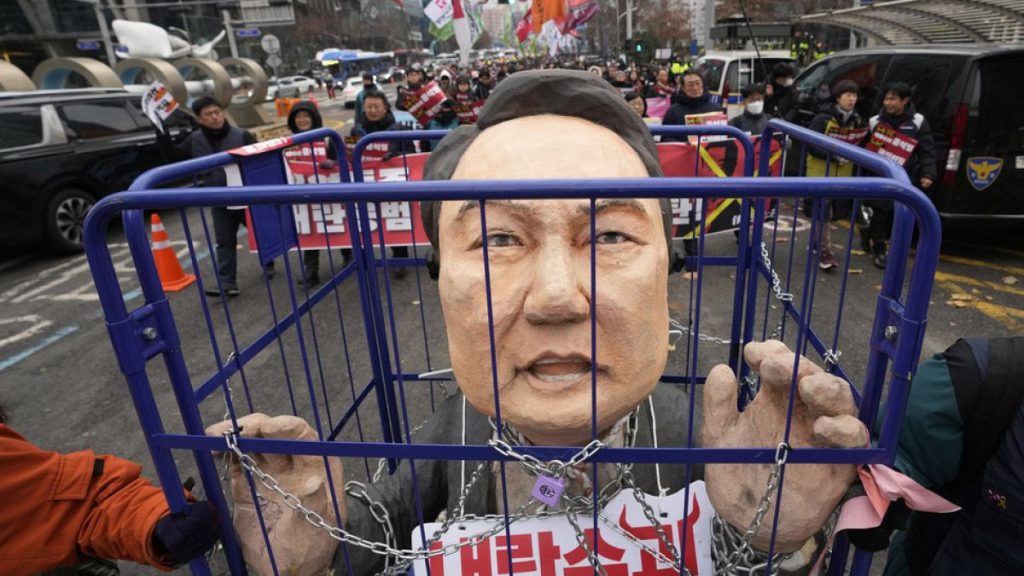The political landscape of South Korea has been embroiled in a dramatic power struggle, culminating in the impeachment of President Yoon Suk-yeol and a subsequent arrest warrant issued by a South Korean court. The warrant, sought by the Corruption Investigative Office for High-Ranking Officials, centers on Yoon’s controversial attempt to impose martial law earlier this month, a move the agency is investigating as a potential act of rebellion. This unprecedented situation has thrown the country into a state of uncertainty, raising questions about the balance of power and the future of South Korean politics.
Yoon’s troubles began with his attempt to impose martial law, a decision he justified as necessary to quell what he termed “anti-state forces” within the opposition. He accused these parties of sympathizing with North Korea and using their parliamentary majority to obstruct his government and impeach key officials. The martial law decree, however, was short-lived, lasting a mere six hours before being rescinded. Despite its brevity, the impact was significant, sparking widespread political turmoil, disrupting diplomatic efforts, unsettling financial markets, and igniting public protests demanding Yoon’s resignation.
The opposition, however, viewed Yoon’s actions as an abuse of power. The National Assembly, controlled by the opposition, voted to impeach Yoon on December 14th, suspending his presidential powers pending a final decision by the Constitutional Court. This impeachment further escalated the political crisis, setting the stage for the legal battle currently unfolding. The court’s decision on Yoon’s impeachment will ultimately determine his political fate, either removing him from office permanently or reinstating him to power.
Adding to the complexity of the situation is the arrest warrant issued against Yoon. The Corruption Investigative Office, after repeated unsuccessful attempts to question Yoon and search his office, sought the warrant from the Seoul Western District Court. Although South Korean presidents enjoy immunity from criminal prosecution, this protection doesn’t extend to serious allegations like rebellion or treason, the very charges being investigated against Yoon. The court’s decision to grant the warrant marks a significant development, potentially setting a precedent for future investigations of high-ranking officials.
The practical enforcement of the warrant, however, presents a delicate challenge. Observers doubt authorities would forcibly detain Yoon, anticipating potential clashes with his presidential security detail, which has previously blocked investigators from accessing his office. The anti-corruption agency itself has not yet outlined how it intends to proceed with the warrant, further adding to the uncertainty surrounding the situation. Yoon’s legal team has challenged the warrant, arguing that the agency lacks the authority to investigate rebellion charges, but they have remained vague about their strategy should the challenge fail.
The political crisis in South Korea deepened further with the impeachment of acting President Han Duck-soo. The opposition initiated this action due to his refusal to appoint three justices to the Constitutional Court, a move they believe could influence the court’s ruling on Yoon’s impeachment. This escalating series of events underscores the deep political divisions within South Korea and the high stakes involved in the ongoing power struggle. The country now awaits the Constitutional Court’s decision, a ruling that will undoubtedly shape the future of South Korean politics and determine the fate of its impeached president.














